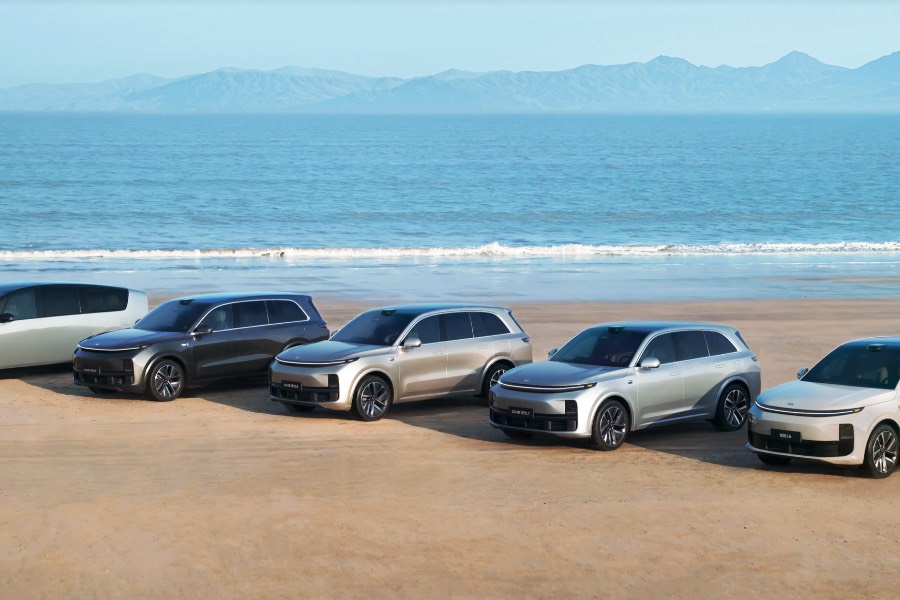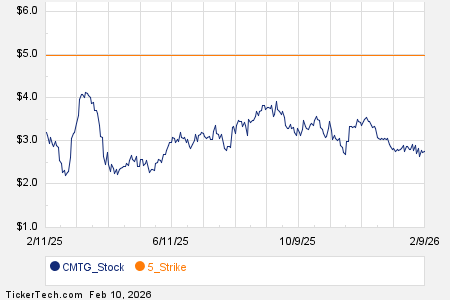Li Auto Faces Rising Competition in New Energy Vehicle Market
Despite leading China’s new energy vehicle sector, Li Auto encounters increased challenges from fast-growing rivals.
Key Takeaways:
- Li Auto’s profit dipped 31% last year to 8.1 billion yuan, with vehicle deliveries weak in early 2025.
- The i8 model is being positioned as Li Auto’s flagship for entering the pure electric vehicle segment.
The new-energy vehicle (NEV) sector is rapidly evolving, and Li Auto Inc. (2015.HK, LI.US) was once a frontrunner as an early adopter. The company frequently outperformed competitors in unit sales and was among the first to achieve profitability in this competitive environment.
However, in this fast-paced industry, today’s leaders can quickly become yesterday’s stories.
Li Auto’s latest financial report for 2024 reveals potential vulnerabilities due to emerging competition. The carmaker reported a revenue increase of 16.6% year-over-year, reaching 144 billion yuan ($20 billion), but profits fell significantly by 30.7% to 8.09 billion yuan. Increased operating costs, driven by a 25% rise in selling and administrative expenses amounting to 12.2 billion yuan, influenced the profit drop.
Early 2025 Delivery Numbers Show Weakness
Although Li Auto celebrated a 33% increase in deliveries in 2024, surpassing 500,000 units, early 2025 figures suggest a slowdown. The company delivered 29,900 units in January and 26,300 in February—a notable decrease from the daily averages in late 2024, which often exceeded 40,000 units. These months typically experience lower delivery rates due to the Chinese New Year.
Competitors are making strides as they launch popular models. For example, XPeng (9868.HK, XPEV.US) delivered over 15,000 units of its budget MONA M03 for two straight months and totaled more than 20,000 units for its P7+ model in the same two months since its debut. This success propelled XPeng to an average of 30,400 monthly deliveries, surpassing Li Auto’s totals during January and February.
Leapmotor (9863.HK) is similarly gaining ground, achieving monthly deliveries of up to 25,000 units—close to matching Li Auto’s output.
While a few months of delivery results do not forecast long-term performance, the recent model launches have sparked substantial sales increases, particularly as they receive favorable reviews. Many NEV makers have posted significant delivery growth recently, threatening Li Auto’s former competitive advantages, which contributed to its early success.
XPeng and Leapmotor Rising to the Challenge
Li Auto now faces pressures from multiple directions as other NEV manufacturers escalate their offerings. In addition to XPeng and Leapmotor, Huawei is a growing contender, with its Harmony Intelligent Mobility Alliance (HIMA) achieving 35,000 vehicle deliveries in January. Despite its recent entry, Xiaomi (1810.HK) is gaining traction, bolstered by positive reviews and substantial demand for its premium models.
Traditional automakers are also increasing their focus on NEVs to avoid falling behind. Geely is leveraging its efforts into Zeekr (ZK.US), while FAW collaborates with Leapmotor for NEV development. Even leading global electric vehicle manufacturer Tesla (TSLA.US) is cutting prices in China to enhance its market competitiveness, entering into fierce rivalry with local brands.
Li Auto’s strength in extended-range electric vehicles (EREVs) is also facing scrutiny. While EREVs effectively address range issues by using a gasoline engine for battery charging, their complexity results in higher maintenance costs that could hinder their popularity. With the automotive market increasingly leaning towards pure electric vehicles, many believe that EREVs could face a decline.
Recognizing industry shifts, Li Auto founder Li Xiang launched the Li Auto MEGA to compete more effectively in the pure EV market. However, criticism of the MEGA, including jokes about its appearance, resulted in only 10,000 units sold in 2024 following its introduction.
Unfazed, Li Auto aims to regain momentum in the pure EV sector this year. The company plans to launch its first pure electric SUV, the Li Auto i8, in July, viewing it as a critical test for its pure EV line, even if it compromises short-term profitability. Prioritizing user experience, charging efficiency, and overall value, Li Auto aspires to position the i8 as a leading model in the premium pure EV segment over the next three years.
The question remains: Can Li Auto elevate its performance and reclaim its status as a top industry player? The outcome is uncertain as the competition intensifies. What is clear is that the battle for dominance will be fierce, requiring substantial investments in new technologies to maintain a competitive edge. The landscape of auto-making has transformed significantly since Geely’s founder Li Shufu described cars simplistically as “four wheels plus two couches.”
© 2025 Benzinga.com. Benzinga does not provide investment advice. All rights reserved.






